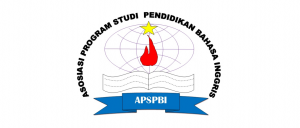Project-Based Learning in Developing English Language Skills and 21st Century Skills: Students’ Voices in Academic Writing Course
DOI:
https://doi.org/10.31002/metathesis.v7i2.801Keywords:
PBL, English language, 21st century, Academic writingAbstract
Project-based learning (PBL) is one of the teaching strategies that has become significant in the twenty-first century. English has also become an important language that needs to be mastered nowadays. Therefore, this research was done to find out how the students felt about the use of project-based learning in academic writing course in developing their English language skills and 21st century skills. The issues experienced by students in project-based learning implementation are also revealed in this study. By employing a qualitative research approach, this study invited 40 English-major undergraduate students from a state university in Central Java, Indonesia, who are currently taking their academic writing course. Students in this course must work collaboratively to complete their research projects and produce scientific papers that will eventually be published. This study's findings successfully demonstrated the students' voices that they believe project-based learning has improved their English and 21st century skills. Writing, problem-solving, and critical thinking are the three skills with the highest proportion in this study. Additionally, the issues with the implementation of project-based learning in academic writing course include student motivation, time management, teaching-learning process, and students' teamwork.
Downloads
Published
How to Cite
Issue
Section
License
Copyright (c) 2023 Metathesis: Journal of English Language, Literature, and Teaching

This work is licensed under a Creative Commons Attribution-ShareAlike 4.0 International License.
The copyright of the received article shall be assigned to the journal as the publisher of the journal. The intended copyright includes the right to publish the article in various forms (including reprints). The journal maintains the publishing rights to the published articles. Therefore, the author must submit a statement of the Copyright Transfer Agreement.

This work is licensed under a Creative Commons Attribution-ShareAlike 4.0 International License.
In line with the license, authors are allowed to share and adapt the material. In addition, the material must be given appropriate credit, provided with a link to the license, and indicated if changes were made. If authors remix, transform or build upon the material, authors must distribute their contributions under the same license as the original.



